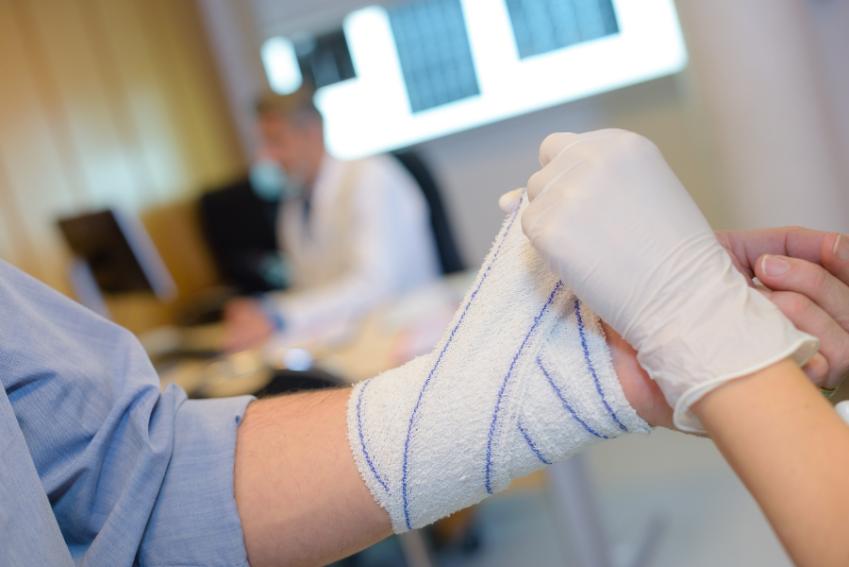Module - Care of Minor Illness and Minor Injuries (Level 6 HCPD6251)
As a core module across a range of programmes the activities and feedback that you will receive throughout the evidence based practice module are designed to enhance both your clinical and academic skills.
The aim of this module is to develop enhanced knowledge of the principles underlying the care of patients presenting with minor illness or injury.
You will need to complete an induction prior to commencement of your first module. We have a comprehensive online induction package to welcome you to both the University and your programme of study.

By the end of this module you will:
- Apply an in-depth knowledge of the pathophysiology of minor illness/injury to the evidence-based management of the patient
- Critically reflect on the skills of assessment and triage in relation to patients who present with minor illness/injury, acknowledging the bio-psycho-social needs of the patient and their family
- Critically appraise the different needs of specific patient groups, including children, older people and people with a mental health disorder who present with minor illness/injury
- Examine the relevant evidence, clinical guidelines and healthcare policy which relate to therapeutic interventions used to treat patients with minor illness/injury
On successful completion, you will be able to:
Apply an in-depth knowledge of the pathophysiology of minor illness/injury to the evidence-based management of the patient
Critically reflect on the skills of assessment and triage in relation to patients who present with minor illness/injury, acknowledging the bio-psycho-social needs of the patient and their family
Critically appraise the different needs of specific patient groups, including children, older people and people with a mental health disorder who present with minor illness/injury
Examine the relevant evidence, clinical guidelines and healthcare policy which relate to therapeutic interventions used to treat patients with minor illness/injury
How you will learn
We are amongst the UK's leading health and wellbeing faculties and are proud of the high level of support we are able to offer to our students.
We provide a wide range of high-quality courses supported by expert academic and clinical practice staff. If you join us you will enjoy great facilities and learn alongside caring, committed and experienced professionals. Our employment record is excellent.
How you will be assessed
Frameworks for assessment. The nature of minor illness/injury. Assessment and treatment of: minor head injury, neck injury, eye emergencies, ear, nose and throat conditions, fractures, sprains and strains, wounds and skin conditions. Dealing with violence and aggression. Legal, ethical and policy factors influencing first contact and emergency care. Paediatric, older person and mental health disorder considerations
Evidence of prior successful study at underpinning level.
Only qualified health care professionals will be eligible to study this module. To be eligible to study this module, students must demonstrate the ability to study at this level and commit to attempting the assessment.
When taken as part of a specific named award, the module content and assessment must be focussed towards the subject of that award. Students must participate in the formative components of the module in order to successfully pass the module.
20 Credit Health Module Pricing
Tuition fees are set annually and are subject to review each year. The University may therefore raise tuition fees in the second or subsequent years of a course, in line with inflation and/or the maximum permitted by law or government policy. Students will be notified of any changes as soon as possible.
Location
Online Learning
Online learning at the University of Cumbria is an interactive experience that makes use of a range of technologies and media types to provide a rich learning environment.
Find out more
Find out more about studying with us
Attend an Open Day at Cumbria
An Open Day is your opportunity to explore one of 5 campuses, meet your lecturers, and find out how the University of Cumbria could become your new home.


.jpg)


